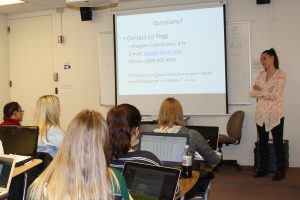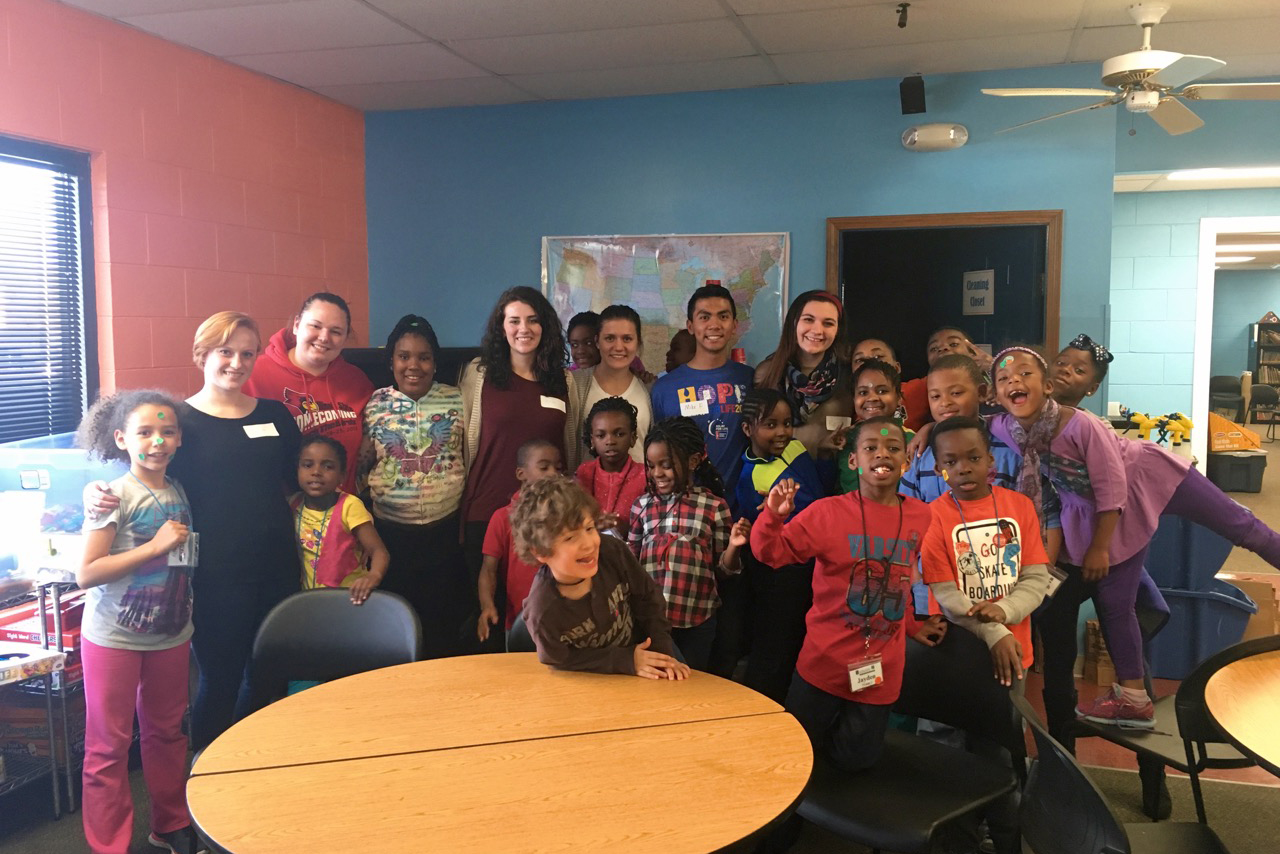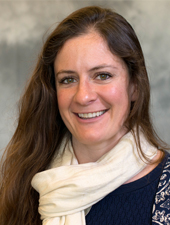Partner Perspectives are written by members of the Community Consulting Board through the Center for Community Engagement and Service Learning. These articles provide examples of partnerships, best practices, and other insights from the viewpoint of Illinois State University’s community partners.
By Liz Repplinger, Extension Program Coordinator, 4-H Youth Development, Unity Community Center
University of Illinois Extension’s Unity Community Center (Unity) has collaborated with Illinois State University since the program’s development in 2003. In Unity’s 16 years, two programs have surfaced as strong partnerships: Illinois State University’s Department of Languages, Literatures and Cultures World Languages Program, developed by Sue Hildebrandt, professor of applied linguistics and Spanish; and Illinois State University’s School of Social Work’s BSW Practicum Placement (BSW), coordinated by Sona Chalian, director of field education. These programs resonate as notable partnerships due to effective communication and a shared vision.
Illinois State University’s School of Social Work Practicum Placement has been effectively structured to allow new community co-educators to quickly understand the practicum structure and expectations. While presenting a clearly defined role for community co-educator, the social work program also solicits feedback from community partners and supports the diversity of co-educator methods of teaching social work candidates. For Unity staff, the partnership has been an opportunity for continued personal growth and professional development.
Illinois State University’s World Languages Program is Unity’s longest running program. Hildebrandt has completed 10 semesters of this educational enrichment program with Unity Community Center. In her time with Unity, she has witnessed Unity’s evolution in staffing and as a program. In that time, Hildebrandt has remained open to ideas of new staff, acknowledging their voices, which lead to stronger programming and partnerships with Unity staff.
Both World Languages and BSW partnerships recognize the value of relationship building to create stronger partnerships. However, the need to balance expectations of each party can be challenging and requires compromise. Remaining patient and open to the program’s evolution is the best route to a strong partnership and program success. With time, identifying and accepting limitations of each partner allows them to become better self-advocates resulting in a stronger partnership.
The greatest success, however, comes from a shared vision. Allowing the program to evolve beyond divided ideas into a single entity requires a joint prioritized list of long and short-term goals. With shared vision, both parties can more effectively evaluate the program—celebrating successes as a group accomplishment and identifying the failures without feeling personally attacked. This perspective fosters a greater sensitivity toward the fellow program partner and ultimately strengthens the relationship. Realization of this shared vision would not exist without open-dialogue, flexibility, and agreed upon objectives. Both World Languages and BSW have worked with Unity to develop a shared vision in programming.
For World Languages, Hildebrandt assigned teacher candidates to invest into relationship building during Unity snack time. As a result, teacher candidates are engrossed in Unity culture—a dynamic structure, supporting youth voice and youth-staff cooperation through open dialogue. After experiencing this environment, teacher candidates have developed more interactive lessons with a greater understanding of how structured programming is most effectively adapted to the behavior expectations of an afterschool program. In addition to the interplay of program structure and behavior, teacher candidates learn the incentive program and use their program time to support it.

Morgan Bilthuis, 2016 BSW Social Work Intern, offering a student perspective of Unity Community Center’s Afterschool Enrichment Program to a classroom of students at ISU.
In working closely with BSW students on practicum requirements, Unity staff has had the opportunity to internalize fundamental concepts of social work. This knowledge has improved Unity’s behavior management practices. With an increased understanding of how individuals function in different environments, staff have become more patient and open to conflict-resolution with youth.
World Languages and BSW partners also realize their support of Illinois State students is pivotal to program partnership success.
For World Languages students, Hildebrandt predicted a stronger relationship between teacher candidates and Unity youth could improve program delivery and improve the experience for both the teacher and the youth. With the introduction of snack time socialization between Unity youth and teacher candidates, Unity staff witnessed increased youth engagement in World Languages lessons. Additionally, the social time revealed youth learning styles to teacher candidates, allowing the candidates to customize their programs for improved delivery.
For BSW, at least two faculty oversees the social work internship process offering regular guidance and direction to interns. For a site not staffed with a social work professional, the additional support of an on-campus social work liaison allows Unity to offer an enriching experience to the social work candidate without denying the candidate insight from a field professional.
With a faculty support, World Languages and BSW students quickly develop impactful relationships with youth and Unity staff. Their ability to develop relationships with a strong foundation has led to more enriching experiences and greater personal growth.
The University of Illinois Extension’s Unity Community Center staff recognize the importance of both parties in strong partnership development. We continue to learn from program partners and the shared experiences for the betterment of Unity youth and the surrounding community.
U of I Extension—Unity Community Center is an afterschool enrichment program serving low-income youth, and their families, with a focus on 4-H Positive Youth Development. Unity is a partnership of University of Illinois Extension, Town of Normal, and McLean County Unit 5 School District. All youth attend Unity free of charge and 45% of the population is ESL (English as a Second Language).


